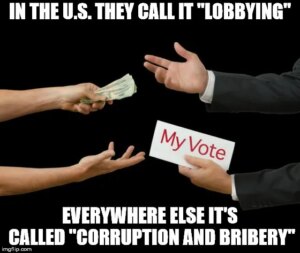The Rising Burden of Medical Costs: A Call for Change

In the U.S., the alarming truth about healthcare costs cannot be ignored. The predatory nature of medical insurance and pharmaceutical companies is contributing to a crisis that many Americans face: financial ruin due to medical expenses. Heart-wrenching statistics reveal that healthcare is the leading cause of bankruptcy in the United States, and this is a situation that is likely to worsen as our aging population grapples with increasingly complex health needs.
A shocking statistic from the American Journal of Medicine highlights that 42% of cancer patients exhaust their entire life savings within just the first two years of treatment. This is not merely a statistic; it’s a narrative that resonates with all of us, as many have been impacted by cancer in some way.
The Financial Reality of Cancer Care
The total cost of cancer care in the U.S. ballooned to an estimated $183 billion in 2015, and projections suggest that figure will escalate by 21% to approximately $222 billion by 2025. The stark reality is that different cancers require uniquely expensive treatments. Consider CAR T-cell therapy for lymphoblastic leukemia, which can cost upwards of $475,000 per patient. Likewise, Kimmtrak treatments for melanoma can skyrocket to $975,520, and Folotyn treatments for T-cell lymphoma can run $842,585. These staggering costs are not just numbers; they represent the devastating financial impact on American families.
The American Journal of Medicine further reveals that 85% of cancer patients end up leaving the workforce at no fault of their own, exacerbating their financial plight. Within just two years of their diagnosis, 42.4% of these patients see their average net worth plummet by $92,098. By the fourth year, 38.2% have depleted all their assets, leading to an average debt burden of $51,882.
A Call for Accountability, Not Just Universal Health Care
At Extreme Investor Network, we advocate not merely for universal health care—where the quality of care may decline—but for strong measures against the monopolistic practices of pharmaceutical and insurance giants that currently hold sway over millions of lives. It is an undeniable fact that many politicians, regardless of party affiliation, are closely tied to these corporations through campaign financing, which complicates advocacy for reform.
Legislative Developments: A Double-Edged Sword
The Inflation Reduction Act introduced a measure that allows Medicare to negotiate drug prices, although this is only applicable to Part D drugs starting in 2026. While positive strides are being made, it raises concerns about the lack of transparency in healthcare pricing. A push led by former President Trump aimed to compel hospitals to disclose pricing for procedures, but such initiatives have yet to gain traction on a broader scale.

Political Donations: The Hidden Influence on Policy
The most recent elections reveal just how deep the ties run between Big Pharma and our politicians. For instance, Eli Lilly’s PAC donated around $180,000 to both Republican and Democratic candidates. Furthermore, pharmaceutical CEOs have been known to donate substantial amounts to political actions committees (PACs), effectively buying influence with their contributions.
Johnson & Johnson’s PAC distributed over $500,000 between 2023 and 2024, while AbbVie operates its own super PAC. Merck & Co. and Pfizer have followed suit, showing a bi-partisan distribution of funds that underscores a larger trend: a system in which political power can be bought effectively undercuts genuine reform efforts.
An Urgent Need for Change
The implications of permitting foreign pharmaceutical super PACs to fund American politics further muddy the waters. Companies like Novartis and Roche engage in these practices during vital election periods, yet the conversation about "foreign interference" often overlooks this significant issue.
This dichotomy of interests raises a crucial question: Who among our policymakers can resist the allure of financial backing from Big Pharma? Is there anyone willing to prioritize the health and financial well-being of American citizens over the interests of corporations?
Conclusion: A Collective Responsibility
At Extreme Investor Network, we understand that the financial realities of healthcare should not lead to bankruptcy. We believe that it’s time for a collective effort against the practices of both pharmaceutical and insurance companies that benefit at the expense of the American public. Our health system should offer treatment without financial devastation—it’s not just a health crisis, it’s an economic one.
Join the conversation—advocate for transparency, question the status quo, and work towards a system that prioritizes the well-being of the people over profits. Let’s stand together in demanding a fair future for all healthcare consumers.

